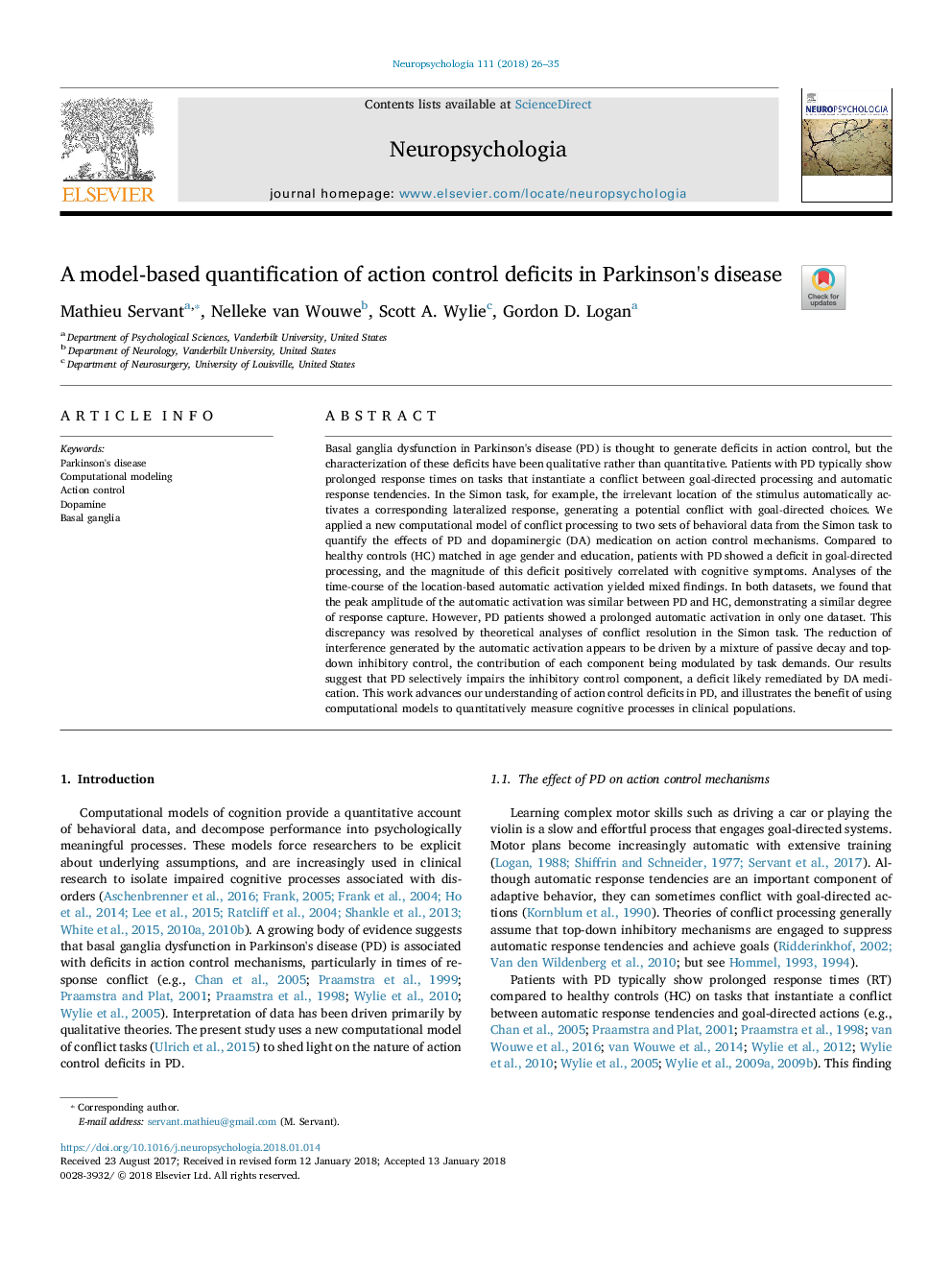ترجمه فارسی عنوان مقاله
تخمینی مبتنی بر مدل نقص کنترل عمل در بیماری پارکینسون
عنوان انگلیسی
A model-based quantification of action control deficits in Parkinson's disease
| کد مقاله | سال انتشار | تعداد صفحات مقاله انگلیسی |
|---|---|---|
| 129918 | 2018 | 10 صفحه PDF |
منبع

Publisher : Elsevier - Science Direct (الزویر - ساینس دایرکت)
Journal : Neuropsychologia, Volume 111, March 2018, Pages 26-35

